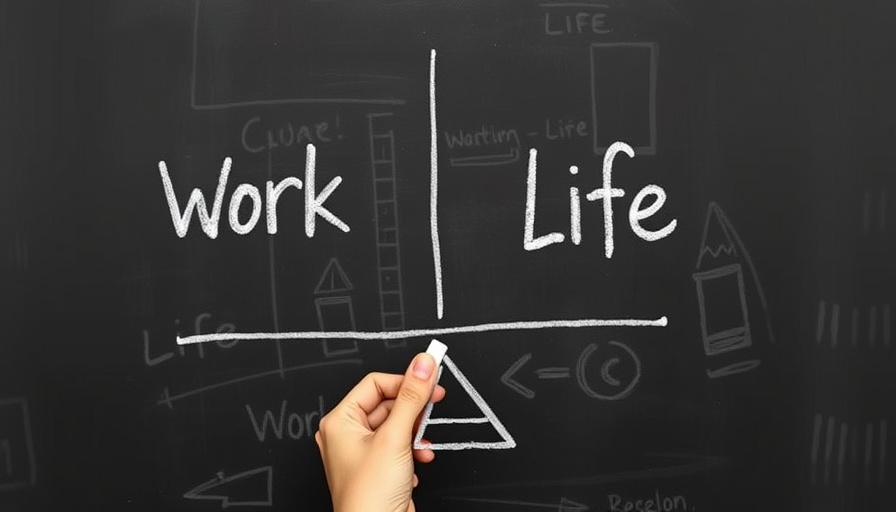
Understanding the Burnout Epidemic Among Gen Z
Burnout among Gen Z is not just a personal struggle—it's becoming a widespread issue that deeply impacts their professional lives. As they enter adulthood, this generation faces a unique combination of high expectations, relentless connectivity, and a culture that equates busyness with success. A staggering 98% of Gen Z workers report feeling burnt out, often leaving them feeling overwhelmed and disengaged from their work.
The Perfect Storm: How Modern Expectations Fuel Burnout
Many people in Gen Z bring a strong desire for meaningful careers that align with their personal values. However, the traditional workplace often fails to meet these needs. Research indicates that this generation craves roles that foster growth and mental wellness, yet the reality can be far different. Many workplaces still prioritize productivity over well-being, often leading to frustrations that contribute to their burnout. Furthermore, social media exacerbates these feelings, with constant glimpses into colleagues' achievements creating an unrealistic bar for personal success.
Reassessing Work-Life Balance: A New Approach is Needed
The pressures of an always-on culture blur the lines between work, education, and personal life, preventing many from finding a healthy work-life balance. Mobile devices keep Gen Z connected 24/7 to work emails and messages that demand their attention even during off-hours. This constant connectivity can lead to feelings of anxiety and guilt whenever they try to disconnect to take a break. A culture that encourages working during downtime disrupts the little time they have to recharge.
Strategies to Combat Burnout: Taking Control of Your Mental Health
Recognizing the symptoms of burnout is the first step toward recovery. Establishing boundaries can significantly help manage expectations. For example, prioritizing time for self-care activities, setting designated work hours, and learning to say no to additional responsibilities can empower Gen Z individuals to reclaim their mental well-being. Engaging in mindfulness practices or even short bursts of exercise can also provide relief from stress. Furthermore, workplaces must evolve to support these needs by promoting mental health initiatives and fostering environments that value employee well-being.
A Look Ahead: Future Trends in Workplace Well-being
As the workforce continues to evolve, it is crucial to understand that addressing burnout isn't just about individual strategies; it also requires systemic changes in corporate cultures. Companies are beginning to see the importance of mental health resources and are implementing flexible work schedules and mental health days as a norm rather than an exception. The trend toward more conversational leadership styles is also on the rise, allowing for open dialogues about mental health and work-life balance. The future of work will likely prioritize emotional intelligence alongside performance metrics, aiding significantly in combating burnout.
Empowering Yourself: The Fine Line Between Productivity and Overwhelm
For many in the workforce today, learning how to identify when productivity is turning into overwhelm can be a game-changer. Empowerment comes from recognizing your limits and having the conversations necessary to advocate for your needs in the workplace. Gen Z is more equipped than previous generations to demand changes that correlate with their core values and mental health needs. It's not just about fostering a productive workforce; it’s about nurturing a community that thrived on balance and wellness.
As we continue to grapple with the pressures of modern work culture, it is vital to recognize that addressing burnout is essential not just for Gen Z, but for the overall health of organizations as well. By implementing better practices for work-life balance and making mental health a priority, companies can help nurture a more fulfilled and engaged workforce.
For those navigating the stressful waters of work, take the time to unplug and reevaluate your priorities. Consider seeking support from mental health professionals or workplace resources. Remember, it’s okay to prioritize yourself—after all, a healthy, happy you is good for business!
 Add Row
Add Row  Add
Add 




Write A Comment